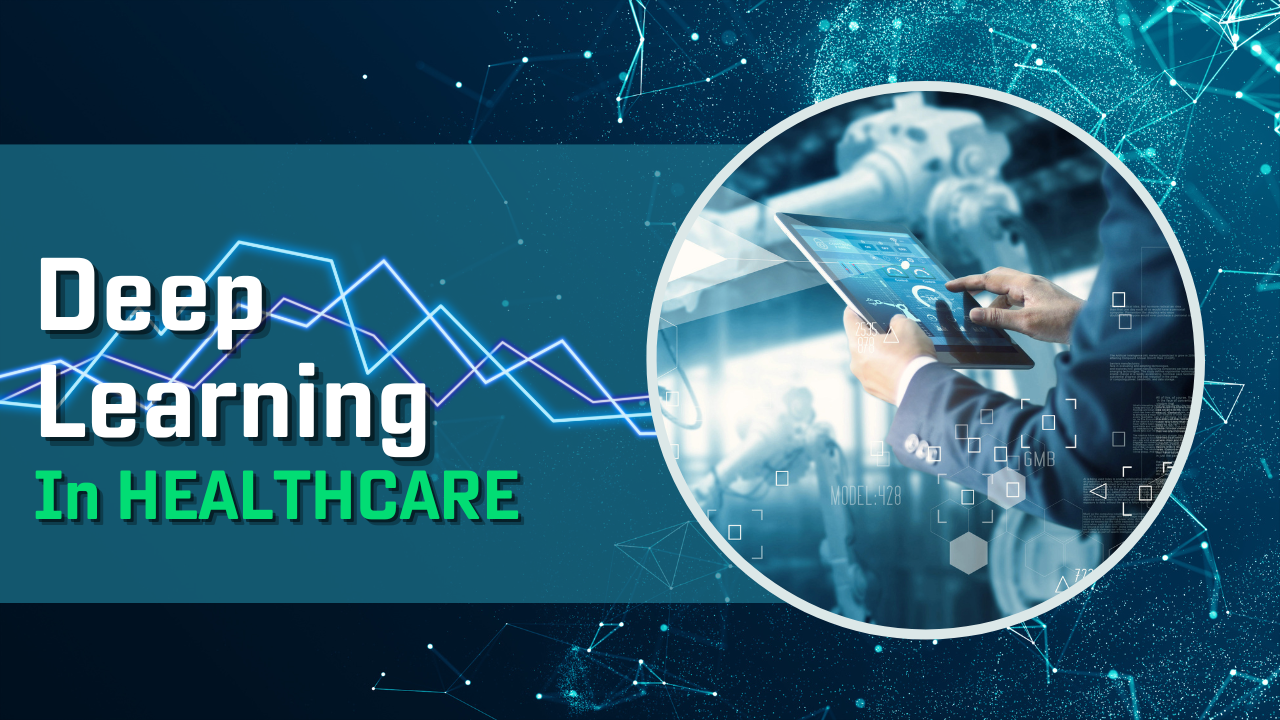Introduction
Technology is changing healthcare in significant ways. A key advancement is deep learning, a type of artificial intelligence set to change the industry . As interest and money flow into AI-driven healthcare solutions, knowing how deep can have an impact on medical practices is key.
Knowing Deep Learning
Deep learning is a kind of artificial intelligence that copies the way human brains use neural networks to process data and make decisions. Unlike traditional machine learning that needs structured data and manual feature extraction deep learning can manage huge amounts of unstructured data and extract important features on its own. This ability makes it very strong for tasks that require big datasets and complex patterns.
In sectors like finance, automotive, and entertainment deep learning has made big advances. For example, it runs recommendation systems for streaming services, improves fraud detection in banks, and supports self-driving car technology. These cases show its flexibility and capability.
Deep Learning Applications in Healthcare
Medical Imaging: Deep learning algorithms are very good at looking at medical images to help find diseases like cancer, heart disease, and neurological disorders . For example convolutional neural networks (CNNs) can spot tumors in radiology scans very well often doing better than human radiologists in quickness and accuracy.
Personalized Medicine: By looking at genetic information and patient history deep learning models can foresee how different patients will react to certain treatments. This lets doctors make treatments fit each patient better raising the chances of good results and lowering the chances of bad reactions.
Predictive Analytics: Deep learning assists in foreseeing patient results, disease outbreaks, and hospital reentries. By studying past data and recognizing patterns, these models provide healthcare providers help to take preventive actions, distribute resources with better effectiveness, and enhance patient care.
Drug Discovery: The process of finding drugs is slow and costly. Deep provides a speed-up by examining large data collections to spot possible drug candidates and foresee their effectiveness. This lowers the time and cost to launch new medications to the market.
Benefits of Deep in Healthcare
Accuracy and Efficiency: Deep learning improves diagnostic accuracy. It gives more exact and steady analysis than old ways. It also cuts down the time needed to process data. This allows healthcare workers to decide faster and more wisely.
Cost Reduction: Using machines to do regular tasks and improving treatment accuracy lead to big cost drops. For instance, machine-based image study cuts the need for many test rounds. Tailor-made medicine reduces try-and-fail methods.
Enhanced Patient Care: Deep learning makes patient care better and more suited to each person. By offering insights special to each patient it supports doctors in making stronger treatment choices and raises health results.
Challenges and Ethical Considerations
Data Privacy: Keeping patient data private is very important. It is vital to handle data and keep patient secrets. Using strong encryption of data and tough controls on who can see the data is necessary.
Bias in Algorithms: Models from deep learning can pick up biases from their training data. If the data used to train them is not varied enough, the results might be unfair. It is important to use wide-ranging datasets and to keep checking and correcting for biases.
Regulatory and Implementation Barriers: Rules for using deep learning in healthcare need to change. It is essential to work together with people who make regulations, create technology, and provide healthcare to start using these technologies and well.
Future Prospects
The future of deep learning in healthcare looks bright. Future advances might bring instant diagnoses online health helpers, and improved robot surgeries. Continued research and innovation are expected to result in new uses and more improvements in patient treatment.
Conclusion
Deep learning will cause a revolution in healthcare by making diagnoses more accurate, tailoring treatments to individuals, foreseeing patient results, and speeding up the creation of drugs. It is vital to handle problems with data privacy algorithmic bias, and regulatory obstacles to make full use of its power. Ongoing research thinking about ethics, and working together between tech experts and healthcare workers are crucial to using the advantages of deep learning in medicine.

